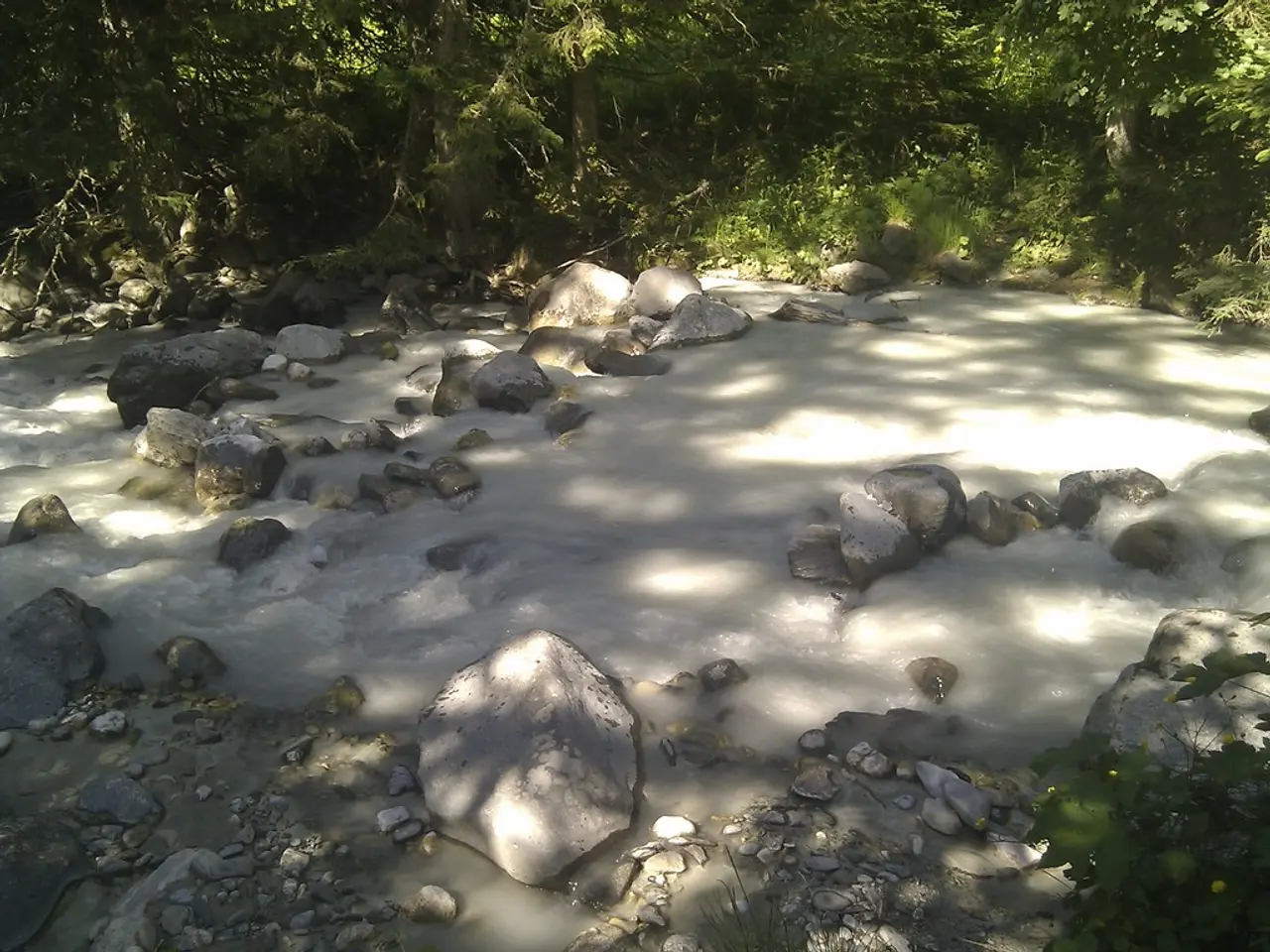Yakutia's Subsoil Users' Payment Amount Detailed by the Minister
YAKUTIA'S ECONOMIC EVOLUTION* VKontakte* Classmates* WhatsApp* Telegram* Twitter
YAKUTIA INFO. In the recent parliamentary hearings at the State Assembly of the Il Tumen, the focus was on the utilization of Yakutia's natural resources. The Minister of Industry and Geology Development, Maxim Tershchenko, presented a report on the mineral and raw material base of the region. Yakutia stands among the top five in oil and gas, top three in gold, top three in coal, and top two in tin production, making it the leader in diamond production.
- The revenue from tax payments by resource companies in Yakutia this year has surpassed 145 billion rubles. This amount greatly exceeds the budget figures received through federal subsidies, as stated by Maxim Gennadyevich Tershchenko. With the projected budget revenue for 2024 being 323,370.1 million rubles according to UlusMedia, it appears that Yakutia currently relies more on the contributions of industrial companies than federal transfers.
The authorities in Yakutia are working on ensuring that resource companies register their branches and subsidiaries in the areas of their activity. As a result, the Neryungri district, which previously faced financial deficits, has become self-sufficient in terms of revenues. This has been made possible by the tax revenues from the resource companies.
- A total of 41 agreements with the republican government, 98 with municipalities, and 28 within the framework of the "Local Cadres in Industry" project have been established between Yakutia and resource companies. Additionally, some companies contribute to the Target Fund for Future Generations. ALROSA, for instance, donates 900 million rubles annually, followed by LLC "Nordgold Management" with 450 million rubles for the years 2024-2027, and UC "Elga Coal", which contributes 150 million rubles yearly. Notably, these funds are utilized for various social projects.
The question remains, however, of whether this is enough to reduce the poverty prevalent in a wealthy republic like Yakutia. Gavril Parakhín, a deputy from the LDPR faction, critiqued the contributions made by large players, calling them insignificant compared to their incomes.
Responding to this criticism, Tershchenko pointed out that a company contributing more to social payments might pay less in taxes, but the current tax revenues from resource users are more substantial than what is allocated from the federal budget.
An intriguing aspect is that the establishment of taxes is a federal competence, whereas agreements on socio-economic development, like those with "Nord-Gold", "ALROSA", and "Elga Coal", are a matter of free will. Though Yakutia has a law on responsible subsoil use, the limitations prevent it from demanding higher taxes or payments from resource companies.
In our opinion, instead of focusing on how much Yakutia should receive from companies, it would be more productive to address ways to make other companies contribute and to incentivize them to do so. Rather than resorting to populism, deputies should engage in negotiations and diplomacy to achieve these goals.
Yakutia's strategy for fostering engagement from resource companies consists of various approaches aimed at encouraging capital investment, innovation support, infrastructure development, and taking advantage of special economic zones. The region is also working to attract private capital, support innovative and creative economy clusters, offer tax and other incentives in priority development territories, and invest in local technological and energy infrastructure[1][2][3].
- Tags:
- ALROSA
- Gavril Parakhin
- parliamentary hearings
- subsoil user enterprises
- Nord Gold
- Maxim Tereщенko
- Elga Coal
- Elga for Yakutia
Stay updated* VKontakte* Classmates* WhatsApp* Telegram* Twitter
- The significant taxes paid by resource companies in Yakutia have surpassed federal subsidies in the budget, indicating a dependence on industrial finance.
- To reduce poverty and foster economic growth, it may be more productive for Yakutia to engage in negotiations and diplomacy with resource companies, rather than relying solely on tax revenues, and encourage capital investment, innovation, and private contributions.




